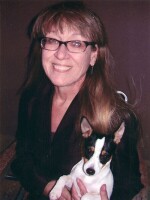MELISSA BLOCK, HOST:
Scotland took a step towards independence today, at least a step towards a vote on the subject. British Prime Minister David Cameron met in Edinburgh with the head of the semiautonomous Scottish government. And together, they signed off on an independence referendum to be held in two years.
But as Vicki Barker reports, it's not clear people in Scotland want independence.
VICKI BARKER, BYLINE: The two men smiled as they exchange copies of the agreement for each other to sign.
ALEX SALMOND: Here, there you go.
PRIME MINISTER DAVID CAMERON: Oh, it's lovely, thank you very much.
BARKER: Although Scotland where he has its own flag, legislature, law courts and national teams, it does not have the legal power to hold an independence referendum. Today's pact allows that vote to be held before December 2014. That gives Alex Salmond and his governing Scottish National Party, or SNP, time to take on an inconvenient reality - polls show most Scots don't actually want independence.
Salmond, telling reporters, watch this space.
SALMOND: You win elections as you win referendums, by winning the arguments.
BARKER: Cameron came into this with the most to lose. History could record him as the British prime minister who oversaw the breakup of the United Kingdom. But when Salmond's SNP won a landslide victory last year, after making independence a big campaign issue, Cameron says he knew he had to let the referendum proceed.
CAMERON: I want to be the prime minister that keeps the United Kingdom together. But I believe in showing respect to people in Scotland.
BARKER: In fact, it wasn't their pro-independence stance that got the SNP elected, says political analyst John Curtice. Scots simply believe it would do the best job running the place.
JOHN CURTICE: We cannot read the likely outcome of the independence referendum off the popularity of the SNP. The SNP at the moment are a lot more popular than independence.
BARKER: An independent Scotland without British subsidies, but with control of offshore oil and gas reserves, the economic arguments on independence are inconclusive either way. But this a campaign based primarily on emotions and an appeal to the Scottish sense of national identity. 2014 was selected because it's the 700th anniversary of the Battle of Bannockburn. That's when Scottish forces, led by Robert the Bruce, defeated English invaders.
Salmond may also be hoping for a little electoral gratitude from the 16 and 17-year-olds who will be allowed to vote for the first time. In fact, it's a different age group galvanized by a different myth that's most receptive to the nationalist call, says demographer Matt Qvortrup, those Scots who were teenagers back when a blue-painted Mel Gibson scorched across the movie screen, in a suicidal quest for Scottish independence.
MATT QVORTRUP: The demographic that actually is going to be more pro-independence are the people who grew up when "Bravehart" came out.
BARKER: Both sides have promised to respect the final result, whatever it is. For NPR News, I'm Vicki Barker in London.
(SOUNDBITE OF MUSIC)
BLOCK: You're listening to ALL THINGS CONSIDERED. Transcript provided by NPR, Copyright NPR.



